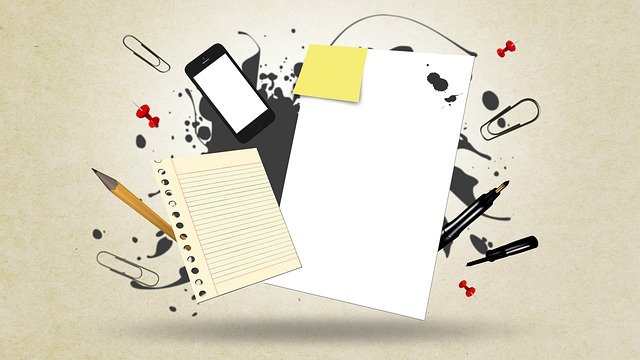Share this
Fool-proof ways to increase your personal productivity and effectiveness
April 20, 2022

Time management courses are a waste of time. Or are they? In a recent webinar, Sally Marshall and Claire McMillan, Talent Development Managers of international law firm Dentons, encouraged us to think about attention management instead. During the session, they provided an overview of useful books, showed us how to identify tasks which sabotage your working day, and finally, outlined ways of maximising our own productivity.
Reading list for productive people
- “How to be a Productivity Ninja: Worry Less, Achieve More and Love What You Do” by Graham Allcott
- “The 7 Habits of Highly Effective People” by Stephen Covey
- “Linchpin: Are you Indispensable?” by Seth Godin
- “Attention Management: How to Create Success and Gain Productivity” by Maura Nevel Thomas
- “Meditation for Fidgety Skeptics: A 10% Happier How-To Book” by Dan Harris
How do some people achieve what they do? We all have the same amount of hours in a day but efficient and productive individuals get more done in a day than others do in a week. What is going on here, and what is their secret? Thankfully, according to Sally and Claire, it is possible for anyone to make the most of their most precious commodity - time.
When are we at our most productive? Hint: Not when we are multitasking
You know what it’s like when you’re in the zone. How often do you achieve a productive state of flow and a zen-like focused calm? When polled, the webinar group mentioned peace and quiet, a lack of distractions, a post-exercise calm, compiling ruthless to-do lists, or even pre-deadline push to the finish line.
We are not at our most productive when we are multitasking. How many tabs do you have open currently? Studies have shown that the more tabs you have open in Chrome, the more your brain has to toggle between them. Likewise, some researchers have suggested that it would be more efficient for us if we focused on one task at a time, and didn’t switch between them,
It takes time (an average of 15 minutes) to reorient to a primary task after a distraction such as an email. Efficiency can drop by as much as 40%. Long-term memory suffers and creativity — a skill associated with keeping in mind multiple, less common, associations — is reduced. HBR, 2010
The antidote to distraction is attention
Time management has always been a challenge for me but when Sally and Claire framed it as attention management, it suddenly became more attainable and something that is controllable. One author summarised my feelings towards managing time succinctly,
Time is not our problem, as we all have the same twenty-four hours in a day, and we can’t control time. Our problem now is one of distraction...And since distraction is our problem, ‘time management’ is not the solution. The antidote to distraction is attention. Maura Nevel Thomas in "Attention Management"
Once we accept that we only have 24 hours in our day/night, we can start focusing on a more workable and effective framework for getting things done. This means thinking about paying attention to your state of mind; your habits, taking advantage of productivity apps and technology, learning how to prioritise, and recognising that you are “only” human.
What is your current attention state?
Are you proactively, actively or passively paying attention right now? Can you identify times of the day when you are naturally more attentive? These crude but useful markers are a great way to identify when you should be writing critical emails or blog posts, or doing some internet research or making a cup of tea.
- Proactive state of attention - critical decision making, chairing meetings, creating searches for current awareness newsletter and alerts
- Active state of attention - attending webinars and meetings, day-to-day working, checking content in newsletters and alerts
- Passive state of attention - sorting through emails, scrolling through social media, taking a coffee break
Think mindfully about when you are most likely to be focused and alert - are you more effective in the morning, afternoon or evening? If you know when your attention is at its most proactive, you can plan your day/week to make the most of this time. Read on for more on mindful use of tech.
Are you a post-it note person?
When David Allen said, “the mind is for having ideas, not for holding them”, I think he meant, “quick - get me a pen and sticky piece of paper before I forget why/what/how/when”. There is a reason why post-it notes remain an integral part of a knowledge worker’s stationery tool kit - that reminds me, I need to put them on my post-it note shopping list!
Post-it notes are low-tech which is why they are so great, but what apps are people using? The group shared their “second brain” recommendations, and the apps that perform a “to do list” function: Todoist, Todoodledo or Remember the milk are all popular. Whatever you choose to use, people said to keep the tech simple, usable and obvious - for example blocking out time on the calendar, creating task lists, and using the software your firm provides.
Current awareness provision to hold your attention
Librarians and knowledge workers have the same number of hours in the day as we ever did, but exciting developments in technology means we can do more with our time. Premium content aggregation lets us track news websites, industry journals and raw legal information automatically, giving us more precious time to spend on the valuable work.
Clients are paying a lot for your organisation’s expertise so it is not enough to provide your own end-users with just a basic current awareness service. You should be thinking about how your library and information services can evolve and diversify. The information function can ensure the organisation is in a prime position to make the most out of the right opportunities.
The more efficient you are, the more productive you can be - which is rewarding for everyone.
Other top ways of managing your attention
The pandemic has taught us a lot about our work habits and how we can manage our attention. We can take these lessons back to the office and into hybrid ways of working.
- Be ruthless - this is a strong word but to make any headway with your focus and productivity, you must practice this with kindness and without aggression. Protect your time, attention, and priorities.
- The stealth of camouflage - many people have discovered the benefits of not being visible at all hours of the working day. Work away from your desk, away from your phone, wear headphones (with or without music), and create your space to be proactively focused.
- Get into good habits - it’s hard to do things differently and change your habits but the pandemic has proven we are adaptable. Working remotely means that we are communicating in different and more agile ways, from meetings, instant messaging, and break times. Let’s continue the things that work.
And finally, preparation underpins everything you do - whether this is practical (making a list) or mental (mindfulness, being present). We need to remember that we are not super humans and we live in interesting and challenging times.
By implementing some of the ideas shared here, anyone can make more productive use of their time. Team Vable incorporates many of these ideas in the course of our day, resulting in an organisation which is committed to fostering a culture of collaboration, innovation and creativity, enabling us to deliver consistently high quality services to clients.
If that isn't as good a reason as any to make radical changes to our working lives as well as our personal lives (it would certainly help a lot if I could manage my time better!), then I don't know what is. I think it's safe to say that we can all benefit from utilising these highly effective methods.
Share this
- January 2026 (1)
- December 2025 (2)
- November 2025 (2)
- October 2025 (3)
- September 2025 (2)
- August 2025 (2)
- July 2025 (4)
- June 2025 (3)
- May 2025 (2)
- April 2025 (1)
- March 2025 (1)
- October 2024 (1)
- July 2024 (1)
- June 2024 (2)
- May 2024 (2)
- April 2024 (3)
- March 2024 (3)
- February 2024 (4)
- January 2024 (2)
- December 2023 (1)
- November 2023 (2)
- October 2023 (2)
- September 2023 (1)
- August 2023 (3)
- July 2023 (5)
- June 2023 (2)
- May 2023 (2)
- April 2023 (4)
- March 2023 (1)
- February 2023 (1)
- January 2023 (2)
- November 2022 (2)
- September 2022 (2)
- August 2022 (2)
- July 2022 (1)
- June 2022 (1)
- May 2022 (2)
- April 2022 (3)
- March 2022 (1)
- February 2022 (2)
- December 2021 (2)
- November 2021 (2)
- October 2021 (2)
- September 2021 (2)
- August 2021 (2)
- July 2021 (2)
- June 2021 (2)
- May 2021 (1)
- April 2021 (2)
- March 2021 (1)
- February 2021 (3)
- January 2021 (2)
- November 2020 (3)
- October 2020 (1)
- August 2020 (2)
- July 2020 (4)
- June 2020 (1)
- May 2020 (1)
- April 2020 (2)
- March 2020 (2)
- February 2020 (3)
- January 2020 (1)
- December 2019 (2)
- November 2019 (1)
- October 2019 (1)
- September 2019 (1)
- August 2019 (3)
- July 2019 (3)
- June 2019 (3)
- May 2019 (2)
- April 2019 (1)
- March 2019 (2)
- February 2019 (3)
- January 2019 (3)
- December 2018 (1)
- November 2018 (2)
- October 2018 (2)
- September 2018 (1)
- August 2018 (2)
- July 2018 (1)
- June 2018 (2)
- May 2018 (3)
- April 2018 (3)
- March 2018 (1)
- February 2018 (3)
- January 2018 (1)
- November 2017 (1)
- October 2017 (1)
- July 2017 (1)
- April 2017 (2)
- March 2017 (3)
- February 2017 (1)
- January 2017 (1)
- November 2016 (2)
- October 2016 (1)
- September 2016 (1)
- August 2016 (2)
- June 2016 (1)
- May 2016 (1)
- April 2016 (1)


